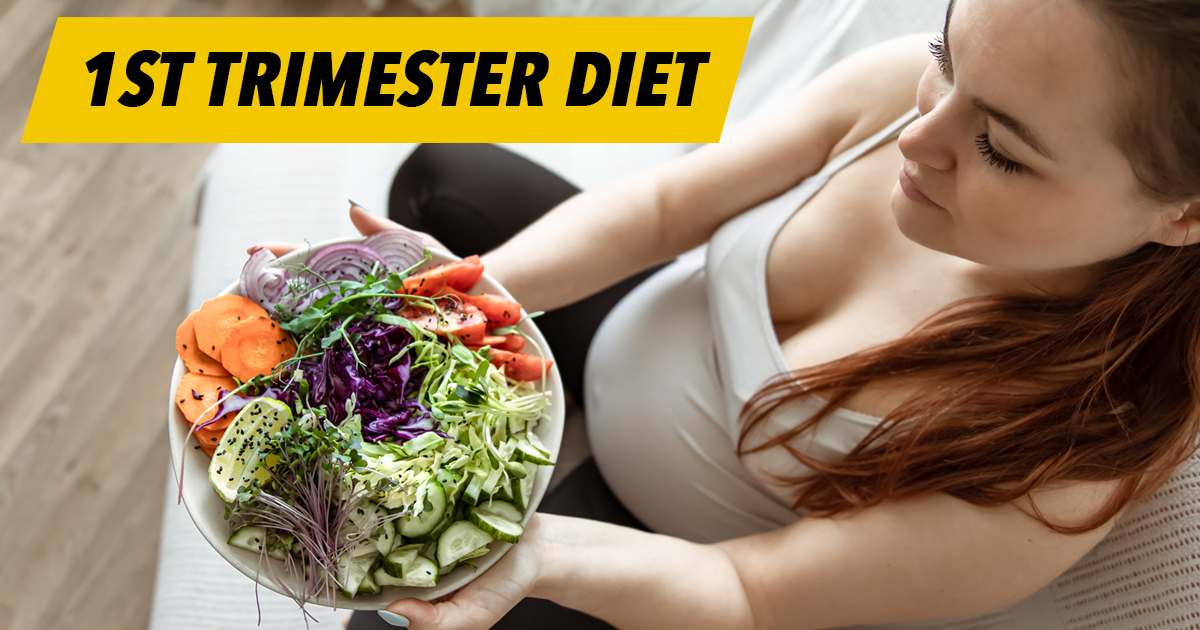Pregnancy is one of the critical phases in the life of a woman when she goes through a myriad of physical and emotional changes. From anxiety to joy, she experiences countless emotions that can be physically demanding on her health. This requires paying sufficient attention to the health and overall well-being during this time. Food is the most important thing that you need to consider in your pregnancy. It is because the food you eat not just feeds your body but also the baby growing inside you.
The first trimester is very critical for your baby as most of the development happens in this period. So, what you eat will reach your baby and aids in his development. The diet should provide adequate minerals, vitamins, and other nutrients to assist the development of its bones and brain. Let us understand more about the ideal diet in the first trimester of pregnancy.
What is the nutritional need in early pregnancy?
Your diet should be inadequate quantity as you are eating for you as well as your baby. It has to be healthy, balanced, and nutritious. This doesn’t mean eating a high-calorie diet, but one that involves greater proportions of folic acid, protein, Vitamin A, and Vitamin D. You can easily get them either through natural means or by way of supplements.
Some of the food sources that provide you necessary nutrition are:
- Protein and essential fats: Peanut Butter
- Complex carbohydrates: Whole grain bread, vegetables, pasta, legumes, and beans
- Folic acid: Citrus fruits, beans, green leafy vegetables, prenatal vitamins.
- Calcium: Dairy products such as milk, cheese, yogurt, and leafy greens.
- Iron: Meat, seafood, poultry, greens, and beans
- Choline: Eggs and Red meat
- Vitamin B12: Meat, seafood, poultry, cereals, and fortified bread.
- Omega-3 fatty acids: Fatty fish, flax seeds, fortified foods, and chia seeds.
- Essential Supplements: You may require to take supplementation for calcium, iron, iodine, potassium, magnesium, Vitamin B2, Vitamin B1, Vitamin B6, Vitamin A, Vitamin B-12, Zinc, Vitamin D, and Vitamin C
Your pregnancy diet should comprise of following foods:
- 3 to 4 servings of different types of fresh seasonal fruits and dried fruits. A minimum of one citrus fruit every day due to its high vitamin C content.
- A pregnant woman requires 300 calories more than her normal food intake.
- 3 to 5 servings of different colored vegetables to obtain a good level of nutrients. Include dark green veggies broccoli, spinach, kale is a must. Other veggies to include are carrots, corn, sweet potatoes, tomatoes, yellow and red peppers.
- Three servings of dairy products in different forms such as milk, yogurt, cottage cheese, paneer, and homemade butter.
- 2 to 3 servings of protein in the form of lean meats, fish, and eggs. If you are a vegetarian, then you can opt for kidney beans, black beans, lentils, nuts, pumpkin seeds, and split peas.
- 6 servings of grains in a day out of which 3 servings should be made up of whole grains. Some of the best choices in whole grain foods can be cereals, whole-grain bread, oats, pasta, and split peas. The inclusion of whole grains foods is necessary for pregnancy diet because they contain a lot of fiber that helps in maintaining adequate bowel function. Choose whole-grain foods than white flour when consuming bread, and pasta.
Food to avoid in the first trimester
There are some foods that are not advised in pregnancy. Though you may experience cravings for these foods, it is advised to keep its intake to a minimum.
The following list of foods should be strictly avoided in the first trimester. These are:
- Fish that have mercury traces such as mackerel, shark, and swordfish
- Raw and less cooked eggs and shellfish
- Raw meats
- Poultry
- Unpasteurized milk
- Soft cheeses like feta, blue cheese, and brie
- Raw sprouts
- Unwashed vegetables and fruits
- Pineapple
- Papaya
- Eggplant
- Black grapes
- Cabbage
- Lettuce
- Coffee, and tea, and other foods that have caffeine
- Too much of salty or sugary foods.
Conclusion
The first trimester of pregnancy is critical for several reasons. It is the time when a woman is prone to birth defects and miscarriage. It is also the time when the significant organs start to develop and require proper nutrition.
Consuming a healthy diet in this phase gets you the right levels of minerals, nutrients, and vitamins. So, start to focus on what you eat to stay active throughout pregnancy. The above information will ensure the best development and health of you and your baby.

